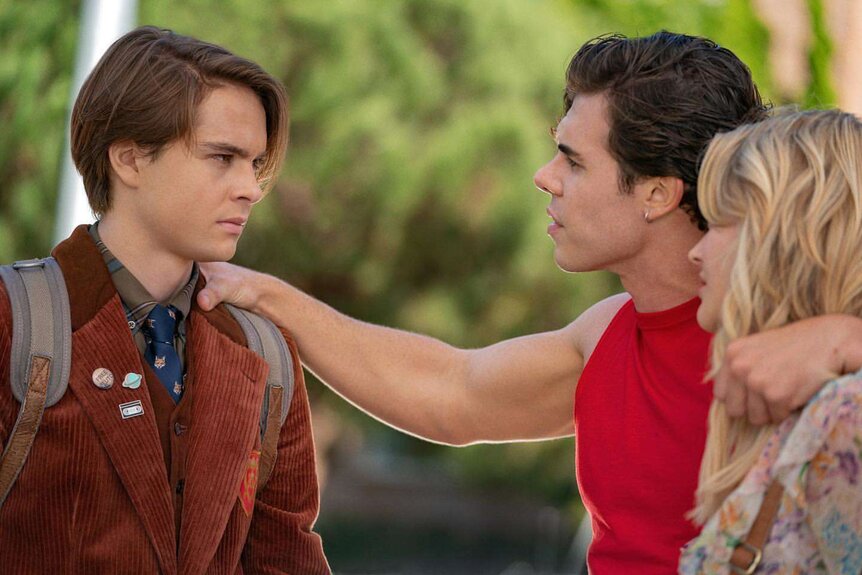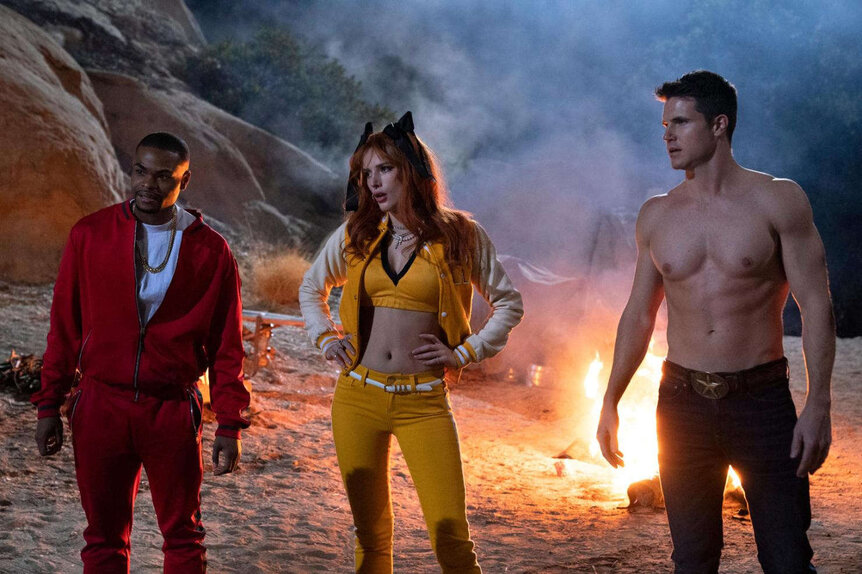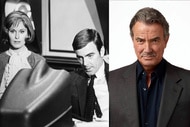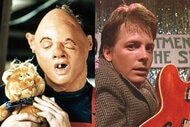Create a free profile to get unlimited access to exclusive videos, sweepstakes, and more!
The Babysitter: Killer Queen's McG talks Supernatural's end, Tarantino kills, and social media woes
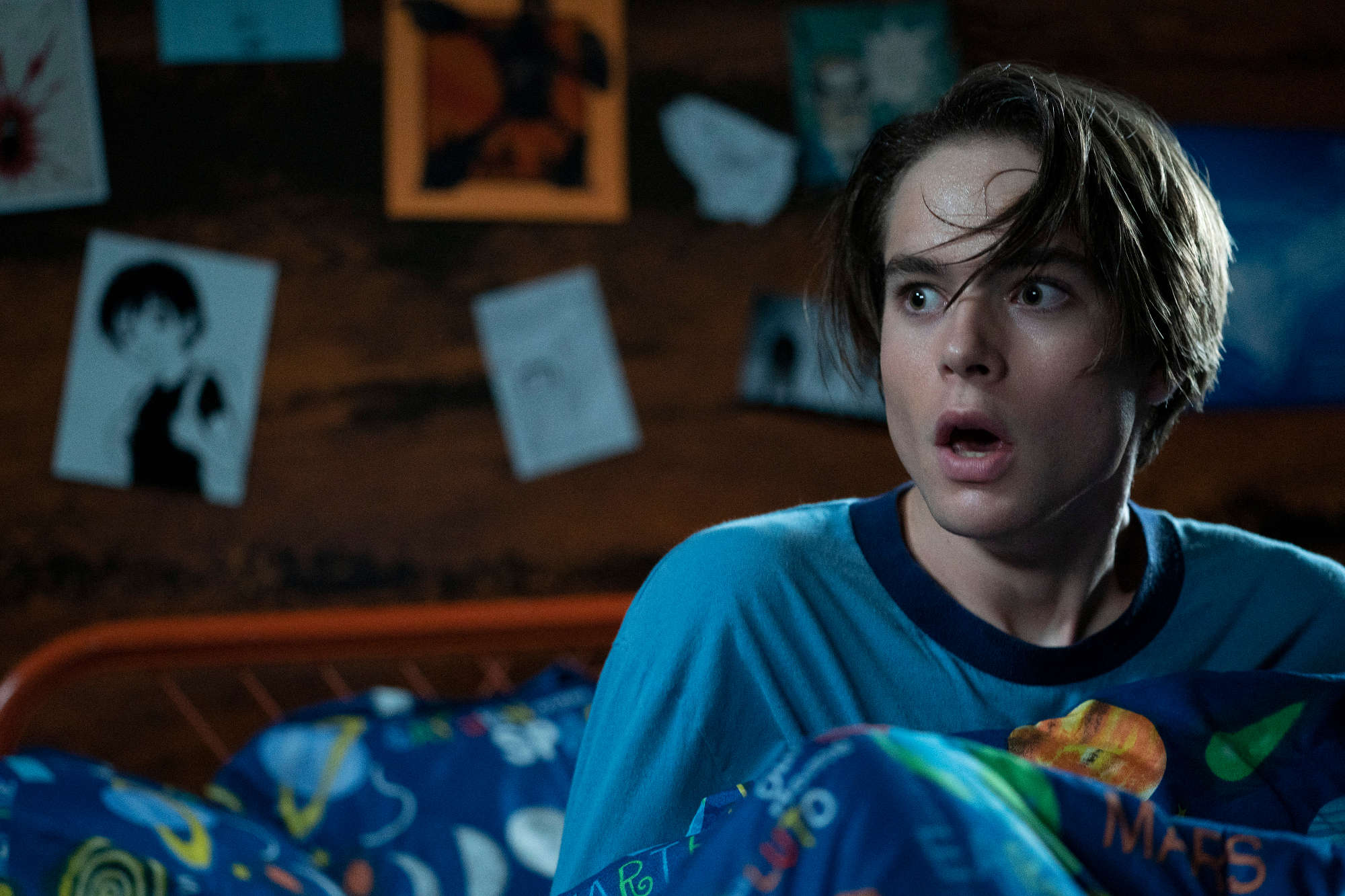
The Babysitter, filmmaker McG’s hilarious tongue-in-cheek response to the combined '80s pop culture staples of coming-of-age nerd films and off-the-wall horror, has a sequel at Netflix. The Babysitter: Killer Queen reunites the cast for another flashy trip through McG’s brain, as Judah Lewis' Cole prepares to suffer through high school while dealing with the wildest pieces of action, horror, and over-the-top silliness the genres have to offer.
And thanks to McG, it all somehow clicks together. The Charlie’s Angels, Terminator Salvation, and Rim of the World director started off in music videos and his impressive career has also seen him help lead shows like Supernatural to incredible success as an executive producer. The guy knows how to make genre work, even a tricky blend like that possessed by The Babysitter films.
Ahead of Killer Queen's premiere, McG spoke with SYFY WIRE about working with a returning cast — including the likes of Lewis, Hana Mae Lee, Robbie Amell, Bella Thorne, Emily Alyn Lind, Andrew Bachelor, Leslie Bibb, and Ken Marino — the end of The CW's long-running Supernatural, and those bloody, bloody kills that make the Babysitter movies such goopy, gory fun.
The following interview contains spoilers for The Babysitter: Killer Queen.
Horror-comedy is the genre blend it seems everyone loves and is so rarely pulled off well. What’s your guiding principle for marrying those two genres?
It's a reflection of my favorite type of filmmaking, which is trying to synthesize genres that don't traditionally coexist that well. The whole film is a reflection of my influences growing up and all the movies I was watching, the music I was listening to, and all the things that affected me so deeply. The movie feels like a mixtape and that's the design.
Hopefully the fans will respond to, what I'm hoping, is the originality of it. I'm trying to respect the viewer by offering something different that you can't put in a box and say, "Oh, that was just like this" or "This movie was just like that." To me that's the fun of filmmaking: it's funny, it's thrilling, scary on occasion, it's emotional, there's a story there, it's about something, and hopefully it mixes highbrow and lowbrow. I mean, the whole thing is based on Goethe's Faust but then you have ridiculous Mel Brooks-esque jokes. It's a mashup, to say the least.
I love that the pull is Faust, which comes across so clearly in Killer Queen. What I saw in the film was a lot of Scott Pilgrim vs. the World and Guardians of the Galaxy.
Oh yeah, I mean I love those two films. It's like I said: This is the most honest expression of who I am as a filmmaker. First of all, the culture at Netflix, they empower me to do my thing — to make what you have to consider an experimental film. Because it's not a plug-and-play, niche, specific expression. It's all over the place. Yeah, there's Scott Pilgrim in there, there's Guardians in there, but I think there's some early Charlie's Angels stuff that I was doing in there and you see reflections of The O.C. You hear it in the music and you see it in the film technique.
Definitely. The two Babysitter films have some very visible touchstones that you brought in — what were, specifically, the major pulls you wanted to bring to Killer Queen that you couldn't in the original?
In the first film, you're dealing with a boy. In the second film, you're dealing with a young man. Obviously, it's a different window of life and I feel more connectivity to the current window that Cole is in. I think everybody does; it's when you feel things most intensely. You talk about the first movie, there's so much John Hughes in there until the flip.
I was happy that Judah Lewis was now at an age where we could explore that and explore love in a physical way with the plot. Sort of flipping the Judeo-Christian ethic of "premarital sex is bad" on its head.
Speaking of high school, were you a corduroy suit kid like Judah is in Killer Queen?
It's funny, the corduroy suit is a direct homage to Wes Anderson. What could be more out of place than a three-piece corduroy suit at a lake party? I thought that was an embodiment of Cole right there.
For me, I was very odd in high school. When I graduated high school I was barely five feet tall, I had an orange afro... I never saw a day in high school without braces. But I was kind of friends with everybody, only because I was a non-threatening, ridiculous human being. It made for an odd experience. I never had a girlfriend or anything like that, but people would use me as a conduit for setting up their corresponding relationships. A very Farmer Ted experience from Sixteen Candles.
You can see parts of that in Cole, because he's defined at school by the events of the first film — and he hates that. But otherwise, he has very few traits that people get to see.
Which is oftentimes the plight of people in that position! I love that you brought that into the light, because that's exactly the intention. It's tricky with Judah Lewis because he's become so damn handsome. I took a look at him when he showed up to rehearse for the second film and I was like "Wow, you're kinda like baby DiCaprio now. How am I gonna make the audience feel bad for you? We should all be so lucky."
Having returning cast members is such a rarity for horror. What was it like getting to work with everyone again on the sequel?
The most enjoyable component of the whole thing. Look at the talent power coming out of Robbie Amell, Andrew Bachelor, Hana Mae Lee, Bella [Thorne], Judah — here comes Jenna Ortega. Emily Lind, Ken Marino, Leslie Bibb — there's so much horsepower there, it's so fun to me. It's like, "OK great, today we're doing Ken and Leslie at the door of Melanie's dad's house. Let's see where that takes us." You know there's going to be wonderful surprises on the day. The same way where, at the end of the first act, when the old killers show up, it's like "Here's [everyone] and I just know each one is going to bring so much specificity and nuance and power to what they're doing."
It really goes back to the thing I think all filmmakers try to do, which is try to create character separation. You'd never confound Max's motivation with John's with Sonya's with Allison's. They're such different individuals. And, furthermore, it also illuminates how each of them made a deal with the devil for silly, shallow, lightweight reasons. The whole point of the movie is that Bee made her deal for a very noble cause: To save another human being's life. She had to sell her soul nonetheless. I liked that as an allegory and a reflection for contemporary social media and some of the pressures kids go through — some of the strange priorities we've developed in an age where image is everything.
The excuse that Melanie gives for her deal, wanting to be an influencer, is so terrible — and yet you see people renting massive influencer houses in L.A. and having COVID parties every day. People really are ready to sacrifice everything for this.
I think you make a great point and I'm only half kidding when I say, "Hey 16-year-old kids, would you sell your soul to the Devil to have [massive social media] followings?" I think a lot of kids would go, "Yes, yeah. That's my absolute out-and-out priority, that's my definition of my best life, and yeah I would." I don't think there'd be a unanimous "No, that's not worth it because ultimately the Devil would come calling and I'll have to pay back the debt." Which is deeply Shakespearean and deeply mythological, and you can find it in the greatest stories throughout the ages. It's more relevant to me in 2020 than ever before.
Those scenes, the dance sequence, the Mortal Kombat fight scene — those are all so flavorful.
When Uma Thurman's character in [Pulp Fiction] says "Don't be a" and traces a square with her fingers, and Quentin Tarantino inserts that white dotted line to illuminate that square? I love things like that. I don't look at that and go "What the f*** are you doing, Quentin?" I go "That's fantastic, I feel honored. This is original, I need to lean in and pay attention." That's always what I'm trying to achieve.
You do raise the visual bar in this movie, especially with the kills. How do you keep the kills creative and interesting?
I'm always paying homage to grindhouse. The time I spent working for Quentin Tarantino, making music videos and commercials at [A Band Apart Films] all through the '90s. Studying the movies he was making, the way he did it and the fun at the end of the day. I'm not into torture porn. I'm into Django shooting [Laura Cayouette's character] and she gets ratcheted back and far too much blood squirts out of her. It's designed to make you or me go [woahing like he just saw a blood geyser], you know? In a delicious way, not in a negative, dark, bummer way.
Finally, Supernatural, a show you executive produced for over half its long, long run, is finally ending. Do you have any thoughts on it coming to a close?
Just that I'm proud. I have nothing but smiles. I remember like it was yesterday, Eric Kripke coming in with the pitch and him saying "It's Star Wars in truck stop America." Casting Jared and Jensen. Working on it through the ages and watching the fandom build — Kansas playing "Carry On My Wayward Son."
I'll always have such a special place in my heart from developing the show, putting it on the air... just huge, huge smiles.
The Babysitter: Killer Queen is now on Netflix.
